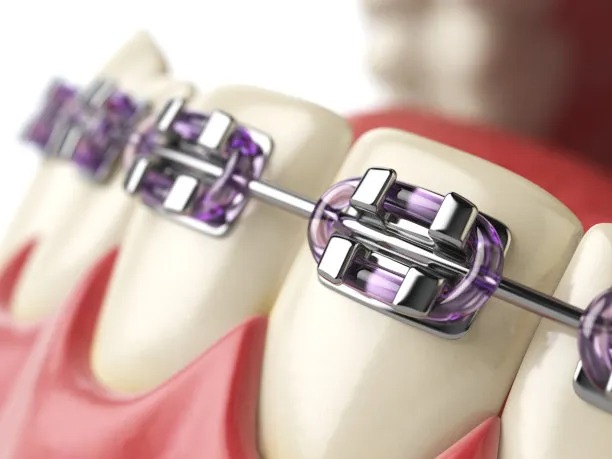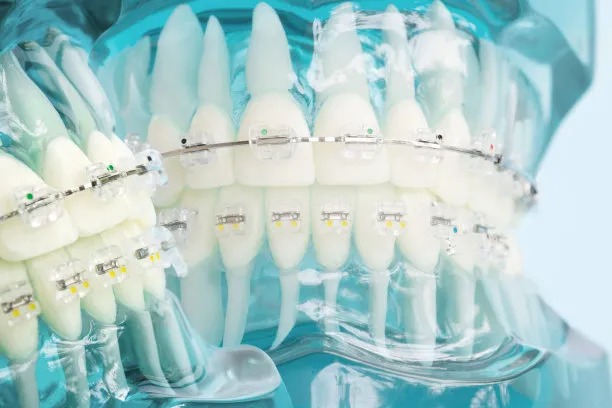Summary: Periodontal disease is a common yet often overlooked condition that significantly impacts adults overall health and well-being. This article explores the various causes of periodontal disease, including poor dental hygiene, genetic predisposition, and systemic health issues. Furthermore, it delves into the consequences of this disease, emphasizing its connections to other serious health conditions like cardiovascular and respiratory diseases, diabetes, and its influence on mental health and quality of life. Furthermore, we will discuss preventive measures that individuals can adopt to maintain gum health and thereby promote their overall well-being. By understanding the comprehensive impacts of periodontal disease, adults can take proactive steps in safeguarding both their oral and overall health today.
1. Causes of Periodontal Disease Explained

The prevalence of periodontal disease can be attributed to several key factors, primarily centered on individual oral hygiene practices. Poor dental hygiene, characterized by inadequate brushing and flossing, leads to plaque build-up that eventually hardens into tartar, prompting inflammation of the gums. This inflammation manifests as gingivitis and can progress to more severe forms of periodontal disease if not addressed. Regular dental check-ups are crucial in preventing the onset of these issues; however, many adults neglect this aspect of their health.
Another significant cause is genetic predisposition. Research indicates that some individuals may inherit a susceptibility to periodontal disease, making them more likely to develop it despite good oral care routines. Genetic factors can influence immune responses, dictating how individuals react to bacterial infections in the mouth. Thus, understanding ones genetic background can aid in predicting risk levels and tailoring preventive measures effectively.
Additionally, systemic health issues significantly contribute to the development of periodontal disease. Conditions such as diabetes and heart disease create an unfavorable environment for oral health. For instance, diabetes impairs blood flow and reduces the body’s ability to fight infections, exacerbating gum disease. This intricate relationship highlights the importance of monitoring one’s overall health as part of maintaining oral well-being.
2. Health Consequences of Periodontal Disease
Periodontal disease extends its effects beyond oral health, playing a pivotal role in contributing to systemic health conditions. One of the most concerning associations is between periodontal disease and cardiovascular health. Studies have established a link between inflammation caused by gum disease and increased risk of heart disease due to the bacteria potentially entering the bloodstream, which can lead to clot formation. This intersection underlines the integral connection between oral hygiene and heart health.
Moreover, the impact of periodontal disease on diabetes cannot be overstated. The chronic inflammation induced by gum disease can make it difficult for diabetics to regulate their blood sugar levels effectively. In turn, poorly controlled diabetes increases the risk of developing periodontal disease, creating a vicious cycle. This relationship emphasizes the need for integrated healthcare approaches that address both dental and systemic health.
Furthermore, periodontal disease can influence mental health and quality of life. Oftentimes, individuals suffering from gum disease experience social anxiety because of the aesthetic aspects of oral health—the fear of bad breath or lost teeth can diminish confidence. Additionally, research suggests that the chronic pain associated with periodontal disease could lead to stress and depression, presenting further complications for individuals struggling with their mental well-being.
3. Prevention and Care Practices
Understanding the importance of prevention is paramount in combating periodontal disease. This begins with establishing a robust oral hygiene routine that includes brushing twice a day and flossing daily. Educational efforts highlighting the importance of correct brushing techniques can empower individuals to maintain healthy gums, reducing the risk of disease significantly. Regular visits to dental professionals for cleanings and check-ups are equally vital in early detection and intervention of periodontal issues.
Incorporating a balanced diet rich in vitamins and minerals supports oral health as well. Nutrients such as calcium and vitamin C are essential for maintaining healthy gums. Foods like leafy greens, dairy products, and citrus fruits not only nourish the body but also contribute to healthier dental tissues. By prioritizing nutrition alongside oral hygiene, individuals can create a protective barrier against the onset of periodontal disease.
Furthermore, managing systemic health conditions is crucial in the prevention of periodontal disease. Regular check-ups with healthcare providers and adherence to treatment plans for conditions such as diabetes and cardiovascular diseases will not only benefit overall health but also protect against oral-related complications. This holistic approach to health can significantly improve outcomes in both systemic and oral health.
4. The Role of Awareness in Oral Health
Raising awareness about periodontal disease should be a shared responsibility among dental professionals, patients, and community health organizations. Educational campaigns can effectively inform the public about the signs and symptoms of gum disease, encouraging them to seek help early. Awareness initiatives can also promote the interconnectedness of oral health with overall well-being, emphasizing that neglecting dental care can have cascading effects on overall health.
Additionally, increasing access to dental care, especially in underserved communities, is critical in addressing disparities related to oral health. Programs that provide preventive services, education, and resources can empower individuals to take charge of their dental health. Ensuring inclusivity in oral health discussions not only benefits individuals but society as a whole.
Finally, fostering a culture of prioritizing dental health from a young age will lay a strong foundation for future generations. Educating children about the significance of proper dental hygiene can instill lifelong habits that culminate in better health outcomes. As awareness spreads, so too does the collective ability to mitigate the impact of periodontal disease on adult health and well-being.
Summary: This article has explored the multifaceted nature of periodontal disease, addressing its causes, health consequences, prevention strategies, and the importance of awareness in promoting oral health. Each element interconnects, underscoring the significance of maintaining both oral and systemic health. Proactive engagement in dental care can yield profound benefits for overall well-being.
This article is compiled by Vickong Dental and the content is for reference only.
Vickong Dental
Vickong Dental is a large medical group established in Hong Kong in 2008 by professors from well-known medical universities in Guangdong and Hong Kong, as well as medical doctors from key national '985' universities (including Master's supervisors and senior professors). The chain of branches brings together expert dentists with PhDs and Master's degrees from Hong Kong and Mainland China, committed to providing high-quality dental treatment.
"Vickong Dental Practices the University Motto of 'Healing and Serving Society,' with a Stable Operation for Sixteen Years. It Has Been honored with Hong Kong Enterprise Leaders's Choice,' and is a Global Trusted Implant Center for the Nobel Implant System. Recommended by Hong Kong Metro Broadcast and Guangdong Television, it Serves Customers from Over Thirty Countries and Regions, Gaining the Trust and Favor of Citizens from the Guangdong-Hong Kong-Macau Greater Bay Area and Surrounding Cities.

Thousands of customers' unanimous praise
The most recognized and highly recommended dental service by customers in the Guangdong-Hong Kong-Macau Greater Bay Area
We Ensure You Receive Detailed Care and Attention Here
Hong Kong standards, Shenzhen prices, Your Trusted English-speaking dentists

Vickong Dental Medical-Grade Instrument Disinfection Process
Vickong Dental Medical-Grade Instrument Disinfection Process

Vickong Dental Chain: A Warm and Comfortable Environment for Treatment






Appointment Hours

Q&A
Why choose Vickong Dental?
Vickong Dental practices the university motto 「Medicine to Benefit Society」, with each branch bringing together highly qualified dentists with doctoral and master’s degrees from Hong Kong and the Mainland, and has maintained seventeen years of steady operation。Recipient of 「2024 Hong Kong Enterprise Leaders Brand」, 「2025 Hong Kong Enterprise Leaders Brand」, a Nobel Biocare Global Trusted Implant Center, and a brand recommended by Metro Radio Hong Kong and Guangdong TV。
To date, we have served customers from more than thirty countries and regions,earning exceptionally high word-of-mouth recognition and trusted recommendations from residents across the Guangdong-Hong Kong-Macao Greater Bay Area and surrounding cities
We have eight major branches in Zhuhai、Shenzhen,and a consultation and service assurance center in Hong Kong,so you can book a free consultation at any time for any questions,which is very reassuring.
If I do not accept the quotation after the CT scan, will I be charged??
No! As long as the actual treatment has not started, you will not be charged any fees.
Will there be any additional charges during the treatment process?
No, there won’t be any additional charges. Before treatment begins, we will clearly explain the treatment plan and its corresponding fees. Only after the patient agrees and signs the consent form will we proceed with the dental service.
Can I pay in Hong Kong dollars?
Yes. Vickong Dental accepts payment in Hong Kong dollars. The amount will be converted based on the exchange rate of the day, and the applicable rate will be clearly communicated to you in advance.
Can I reschedule my appointment at any time?
Yes. Please contact us via **WeChat** or **WhatsApp** as early as possible, providing your original appointment time and details, along with your preferred new date and time slot for rescheduling.













